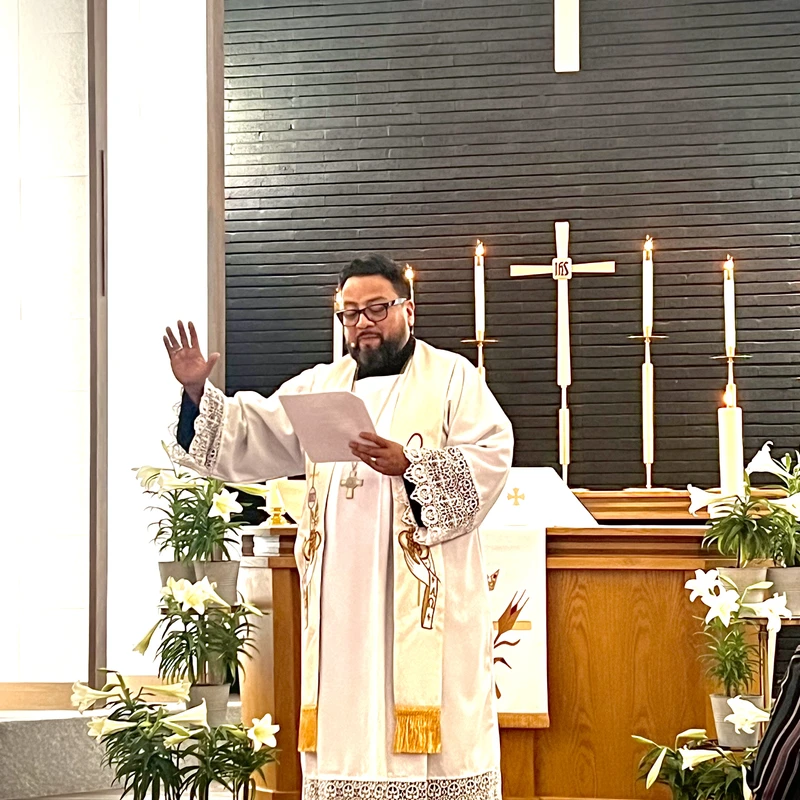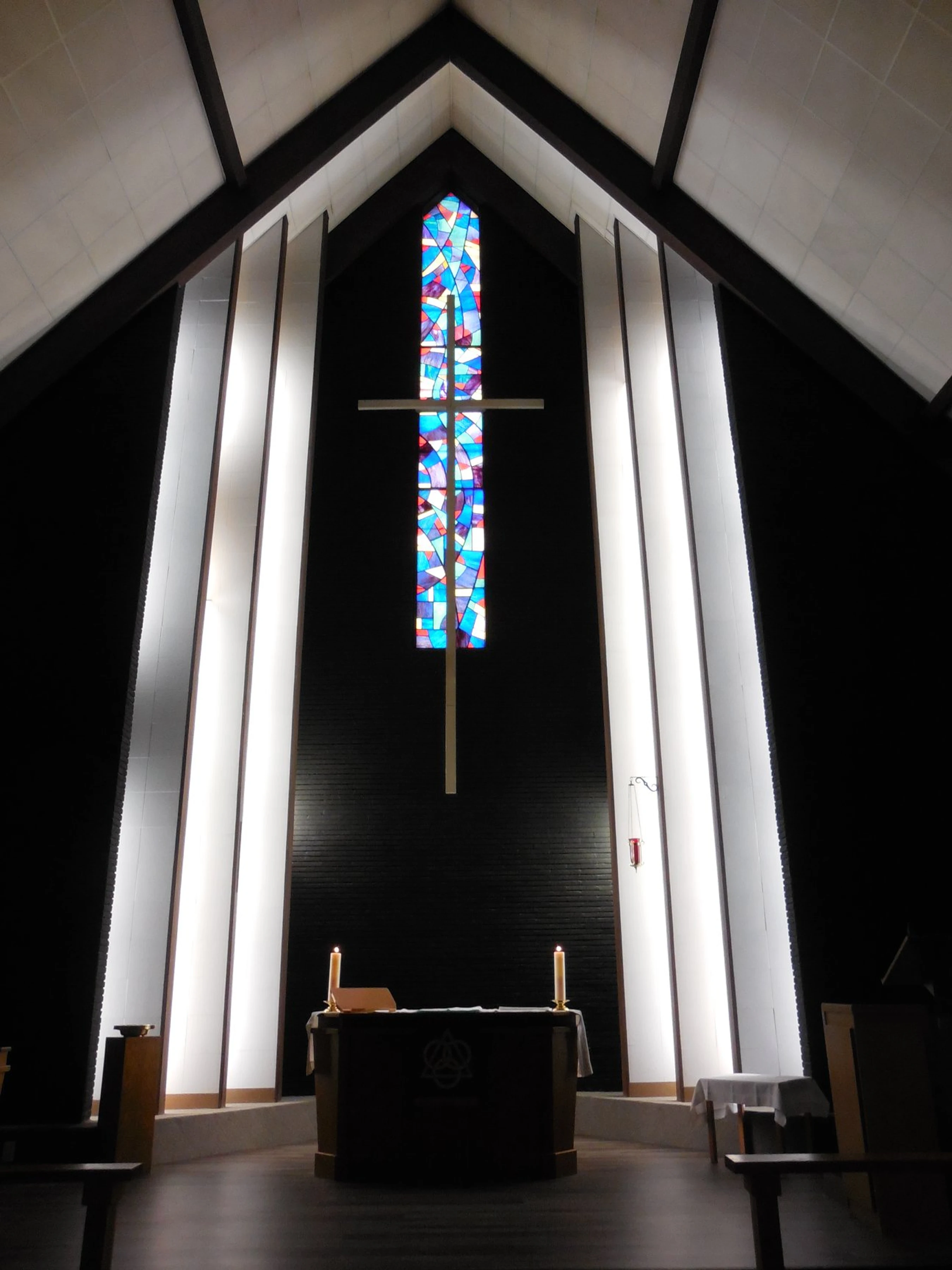The Readings anchor us in God’s Word, placing us within the story of Scripture—standing among prophets, apostles, disciples, and crowds, all hearing the living voice of God.
Sanctus unites the praises of Palm Sunday with the heavenly vision of Isaiah—declaring that Christ, high and lifted up, is present with us here and now.
In the Agnus Dei, we confess with John the Baptist: “Behold, the Lamb of God,” and we prepare to receive the very Lamb slain for the sin of the world.In the Words of Institution, Christ Himself speaks and gives what He promises: His true body and blood, for the forgiveness of sins.And finally, in the Nunc Dimittis, we sing with Simeon, content and at peace, for we too have seen and touched the promised Savior.
From beginning to end, the Divine Service leads us through the Gospel. It reminds us who we are—sinners redeemed by grace—and what God has done for us in Christ. It nourishes us, shapes us, and sends us back into the world as His people, to live in faith and love.
This is why we worship the way we do. Not to preserve tradition for its own sake, but because this way of worship tells the truth about who God is, what He has done, and how He continues to come to us—week after week—in mercy and love.


